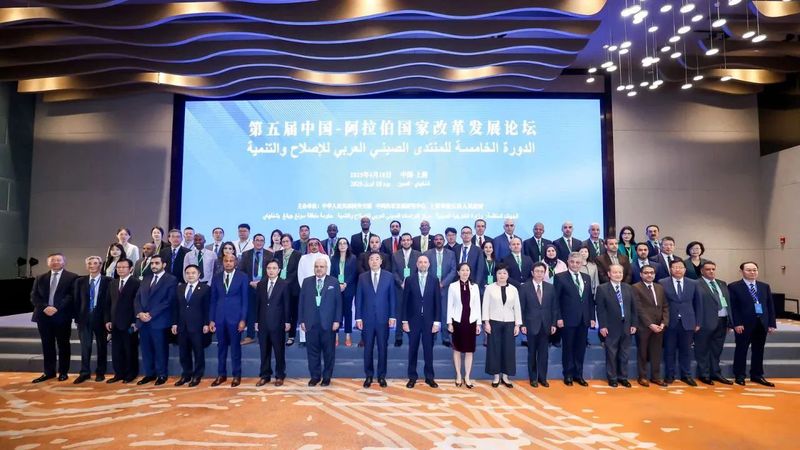
On April 18, 2025, the fifth China-Arab States Forum on Reform and Development was held in Shanghai. More than one hundred representatives from the political, academic, and business sectors from China, 19 Arab countries, and the League of Arab States attended the meeting, and some Arab ambassadors to China were present as observers. This forum is supported by the Ministry of Foreign Affairs and organized by the China-Arab Research Center on Reform and Development, and co‑hosted by the People’s Government of Songjiang District, Shanghai.
Special Envoy Zhai Jun of the Government of the People’s Republic of China on the Middle East Issue, Mr. Mohcine Jazouli, Former Delegate‑Minister to the Head of Government in Charge of Investment, Convergence and the Evaluation of Public Policies of the Kingdom of Morocco, Dr. Khaled A. Mahdi, Former Secretary‑General of the General Secretariat of the Supreme Council for Planning and Development of the State of Kuwait, Ms. Yin Dongmei, Chairperson of the China–Arab Research Center on Reform and Development and Party Secretary of Shanghai International Studies University, Mr. Wang Huajie, Secretary of the CPC Songjiang District Committee, Shanghai, and Ms. Ye Liang, Deputy Director of the Foreign Affairs Office of the Shanghai Municipal People’s Government, attended the opening ceremony. The ceremony was presided over by Mr. Li Yansong, Executive Director of the China–Arab Research Center on Reform and Development and President of Shanghai International Studies University.
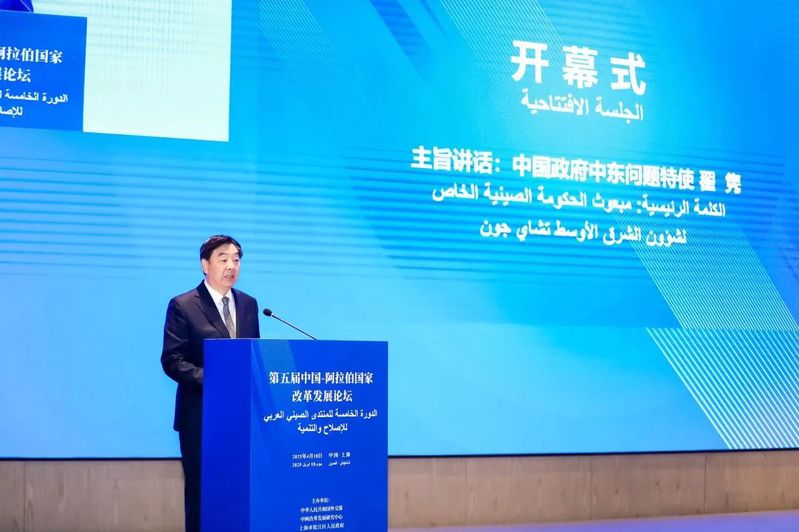
Zhai Jun said that in May last year, President Xi Jinping attended the opening ceremony of the 10th Ministerial Conference of the China-Arab States Cooperation Forum and proposed that China is ready to build the five cooperation frameworks with Arab states, which has charted the course for the innovative development of China-Arab cooperation. Today, changes unseen in a century are unfolding at an accelerated pace, and global economic growth is facing instability. China has sufficient policy tools in reserve to completely hedge against adverse external impacts. No matter how the international landscape evolves, China will always focus on managing its own affairs well, comprehensively advance Chinese modernization, and will always work shoulder to shoulder with Arab states, uphold the original intention of friendship and mutual trust, enhance confidence in innovative development, firmly resolve to openness and win-win results, and unite and cooperate for common development.
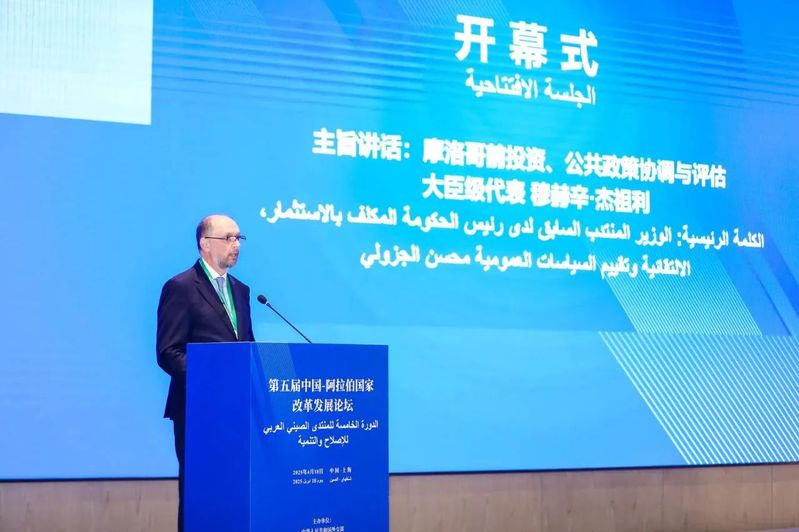
Mohcine Jazouli noted that in recent years, friendly relations between China and the Arab world have continuously deepened, and China has become Morocco’s second‑largest source of imports. He stated that the 5th China–Arab States Reform and Development Forum represented an important opportunity to further deepen collaboration, enabling both sides to jointly explore prospects in key sectors to benefit their peoples and achieve sustainable development.
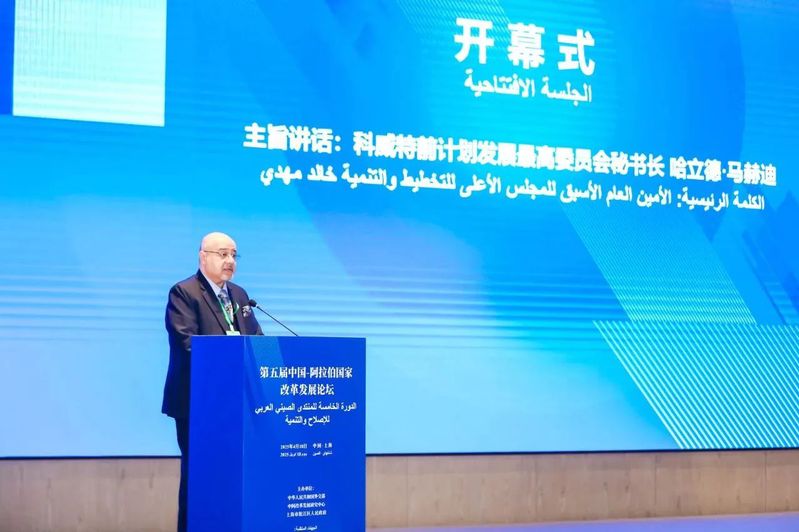
In his speech, Khaled Mahdi noted that China and the Arab side have signed multiple agreements under the framework of the Global Development Initiative. He emphasized that the Global Development Initiative is not merely a theoretical framework, but an opportunity to reshape the landscape of global cooperation—one that will be built on the principles of equality, cooperation, and mutual respect.
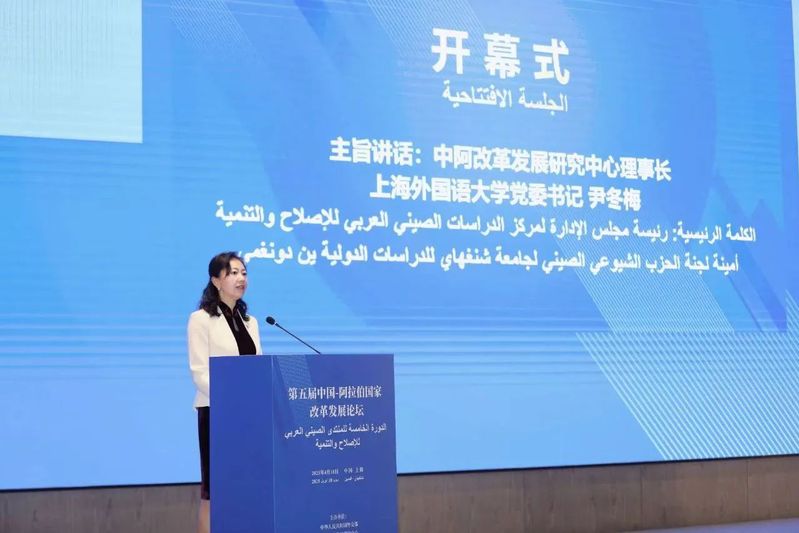
Yin Dongmei stated that the Global Development Initiative originates from China, but its opportunities and outcomes belong to the world. She noted that China–Arab relations are being driven by innovation as an engine, gathering a powerful synergy for jointly building modernization . Since its establishment, the China–Arab Research Center on Reform and Development at Shanghai International Studies University has been consistently committed to promoting exchanges of experience in governance as well as reform and development between China and Arab states . Shanghai International Studies University will, in this process, fully leverage its strengths in talent cultivation and academic disciplines to contribute to dialogue and exchange between Chinese and Arab civilizations.
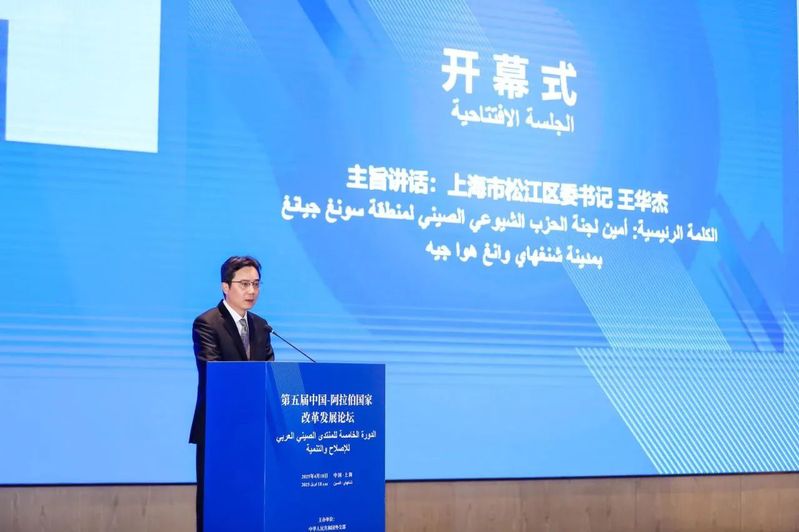
In his remarks, Wang Huajie noted that Songjiang District is the national strategic starting point for the Yangtze River Delta G60 Science and Innovation Corridor, the principal base for high‑end manufacturing in Shanghai, and a key platform for the construction of the International Science and Technology Innovation Center in Shanghai. He stated that Songjiang District welcomes enterprises and institutions from Arab countries to visit Songjiang to pursue development together and share a win‑win future.
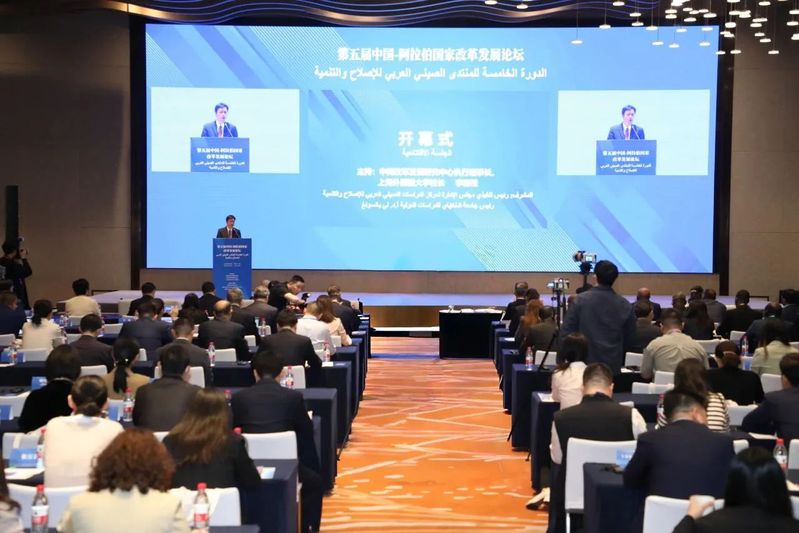
In‑depth discussions at the forum focused on topics such as “Implementing the Global Development Initiative to propel China–Arab cooperation ‘Striding Towards the New’,” “Innovation‑driven sharing of the future, pooling new synergies for modernization,” and “Trade and investment empowering development, opening new horizons for high‑level opening‑up.” Chinese and Arab experts and business representatives attending unanimously agreed that, against the backdrop of a new round of rapid technological revolution and industrial transformation globally, both sides should join hands to implement the Global Development Initiative, uphold the multilateral trading system, promote high‑quality development in the new era, drive industrial advancement through innovation as well as trade and investment, and jointly explore new pathways to modernization.
On April 19, some Arab representatives visited the Yangtze River Delta G60 Science and Innovation Corridor Exhibition Hall and enterprises representative of the new quality productive forces to inspect technological innovation and economic development, experience firsthand Shanghai’s dynamic practice of Chinese‑style modernization, and witness China’s rapid advances in scientific and technological capabilities and the vigorous development of its economy and society.
The China-Arab States Reform and Development Forum was organized by the Ministry of Foreign Affairs on the basis of CARC, which has built an effective platform for China and Arab countries to strengthen governance and exchange of experience in reform and development.
